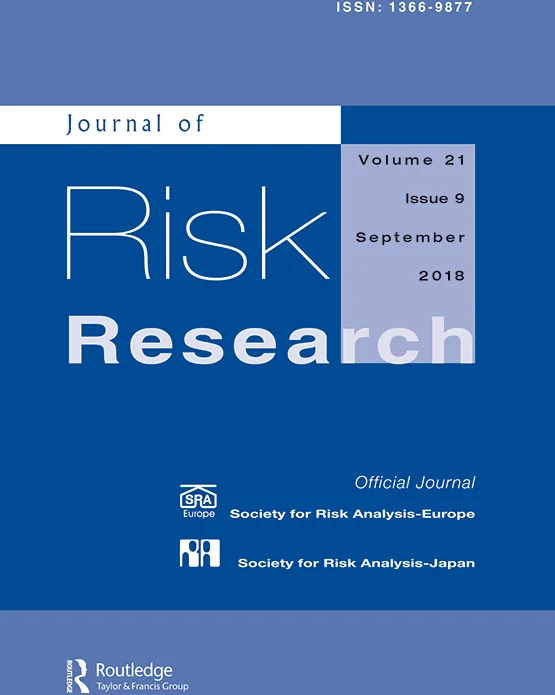特刊“核能领域的信任、不信任、不信任和建立信任:来自欧洲的历史和比较经验”导言
IF 1.7
4区 管理学
Q1 SOCIAL SCIENCES, INTERDISCIPLINARY
引用次数: 0
摘要
摘要信任对于核能和放射性废物管理等高风险行业的成功参与式决策至关重要。然而,尽管建立信任的努力在政策实践中无处不在,但过度信任的负面影响以及不信任和不信任的潜在优点却没有得到从业者的认可,而且在社会科学学术界的研究仍然不足。本期特刊提供了一系列独特的文章,对欧洲过去和现在核能和放射性废物管理项目的经验案例中的信任、不信任和不信任进行了跨国、比较和历史分析,有助于填补研究空白。这篇引言为特刊文章提供了一个共同的概念框架,建立在两个区别的基础上:1)信任、不信任和不信任这三个关键概念,以及2)社会、制度和意识形态这三个维度,贯穿这三个重要概念。确定了未来研究的一些任务。其中包括更细粒度和上下文敏感的分析,这将有助于在现实世界中实施谨慎的怀疑和不信任的公民警惕等概念;更好地理解建设性的不信任何时可能转变为功能失调的不信任;非民主社会中的信任、不信任和不信任的动态;以及信任、不信任和不信任的人际、制度和意识形态层面之间的互动。最后,需要更多的概念和实证工作来整合和实施现有社会科学研究中对技术科学承诺和期望的不信任警惕原则,以努力开发新的“承诺制度”,更符合当今世界末日威胁和对技术科学的风险和好处的模糊认知的时代。本文章由计算机程序翻译,如有差异,请以英文原文为准。
Introduction to the special issue “Trust, mistrust, distrust, and trust-building in the nuclear sector: historical and comparative experience from Europe”
Abstract Trust is essential for successful participatory policymaking in high-risk industries, such as nuclear energy and radioactive waste management. However, while efforts at building trust are omnipresent in policy practice, the downsides of excessive trust and the potential virtues of mistrust and distrust are poorly recognised by practitioners, and remain under-researched in social science scholarship. This special issue contributes to filling the research gap by presenting a unique collection of articles transnational, comparative and historical analysis of trust, mistrust, and distrust in empirical cases of past and present nuclear energy and radioactive waste management projects across Europe. This introduction presents a shared conceptual framework for the articles of the special issue, built on two distinctions: 1) the three key concepts of trust, mistrust, and distrust, and 2) the three dimensions – social, institutional, and ideological – that cut across those three key concepts. A number of tasks for future research are identified. These include more fine-grained and context-sensitive analysis that would help operationalise concepts such as prudent scepticism and mistrustful civic vigilance in real-world situations; better understanding of when constructive mistrust might turn into dysfunctional distrust; the dynamics of trust, mistrust, and distrust in non-democratic societies; and the interaction between interpersonal, institutional, and ideological dimensions of trust, mistrust, and distrust. Finally, more conceptual and empirical work is needed to integrate and operationalise the principle of mistrustful vigilance in existing social science research on techno-scientific promises and expectations, in an effort at developing new ‘regimes of promise’, better in tune with the current era of apocalyptic threats and ambiguous perceptions concerning the risks and blessings of techno-science.
求助全文
通过发布文献求助,成功后即可免费获取论文全文。
去求助
来源期刊

Journal of Risk Research
SOCIAL SCIENCES, INTERDISCIPLINARY-
CiteScore
12.20
自引率
5.90%
发文量
44
期刊介绍:
The Journal of Risk Research is an international journal that publishes peer-reviewed theoretical and empirical research articles within the risk field from the areas of social, physical and health sciences and engineering, as well as articles related to decision making, regulation and policy issues in all disciplines. Articles will be published in English. The main aims of the Journal of Risk Research are to stimulate intellectual debate, to promote better risk management practices and to contribute to the development of risk management methodologies. Journal of Risk Research is the official journal of the Society for Risk Analysis Europe and the Society for Risk Analysis Japan.
 求助内容:
求助内容: 应助结果提醒方式:
应助结果提醒方式:


